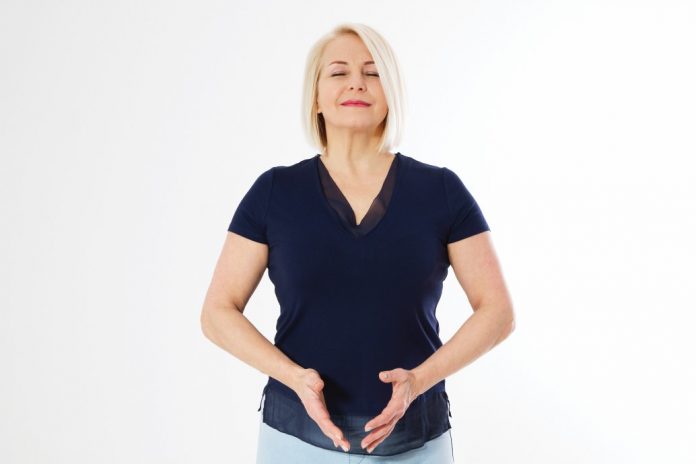Warding off weight gain in menopause
Both men and women can gain weight as they age, but for women, it can be difficult to separate the effects of ageing from those of menopause. Between the ages of 45 and 55, women gain on average half a kilo a year.1 Fortunately, making healthy lifestyle choices can help women to achieve and/or maintain a healthy weight and improve their future health.
According to researchers from the University of Sydney’s Charles Perkins Centre, minor adjustments to the balance of macronutrients in a woman’s daily diet during the transition to menopause could lessen or even prevent weight gain and lean tissue loss.
The researchers propose that such problems develop when no changes to food intake or levels of activity are made to counteract the natural biological changes that occur at menopause.2
Protein leverage effect
The researchers suggest that the body’s appetite for protein increases during perimenopause due to hormonally induced tissue protein breakdown. But if protein requirements aren’t met, women overconsume other forms of energy.
This is due to the ‘protein leverage effect’3 previously discovered by Charles Perkins Centre professors David Raubenheimer and Stephen Simpson and applied here to the menopause transition for the first time. This essentially means that without increasing the proportion of protein in the diet, the body’s drive to reach its target protein intake will make us continue to eat unnecessary calories until the target is reached.
To make matters worse, levels of energy expenditure tend to fall during menopause, so the researchers hypothesise that women need to eat both less energy (in the form of carbohydrates and fats) and more protein to compensate for the biological changes at menopause.
“The evidence suggests that staying on the typical highly processed Western diet during the transition to menopause at around age 40 to 50 will result in excess energy intake, leading to weight gain and increased risk of obesity and cardiometabolic diseases,” said Professor Simpson, lead author and Academic Director of the Charles Perkins Centre.
Professor Raubenheimer, co-author and head of the Nutrition Theme at the Charles Perkins Centre, added: “The good news is that it appears very small changes to the diet in terms of prioritising protein, reducing fats and carbohydrates and being physically active could make a big difference in the long-term.”
Increased awareness
Professor Kirsten Black, co-author and academic gynaecologist from Central Clinical School in the university’s Faculty of Medicine and Health, noted the problem of weight gain in perimenopause was now more widely recognised in the community.
“Women are interested to learn more about the macronutrient compositions of foods and the impact these can have on their health,” said Professor Black, who is also Head of the Menopause Clinic at Concord Hospital. “Our discussions with consumers have also identified a gap in knowledge around what constitutes high or low protein foods, which needs targeted education.”
Senior author and endocrinologist Professor Emeritus Arthur Conigrave from the Charles Perkins Centre and Faculty of Science says a substantial prospective study of around 1000 women aged 40-45 is needed to formally test this hypothesis.
“If proven correct, this would allow us to develop new preventative strategies for the significant proportion of women who report weight gain and associated health problems during the transition to menopause despite no changes being made to their food intake or levels of physical activity,” he said.
Ideal diet
So, if the hypothesis is proven correct, what would the ideal diet look like during the transition to menopause?
The researchers suggest that increasing the proportion of protein in the diet by around three per cent of daily energy intake and lowering total energy intake by five to 10 per cent a day may be the key.
“For many, cutting out a bag of crisps, a glass of sugar sweetened beverage, or the equivalent, and ensuring that high quality animal or plant protein is in the daily diet will do the trick,” Professor Simpson said.
References








